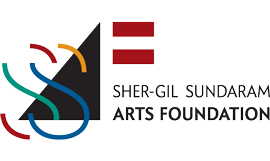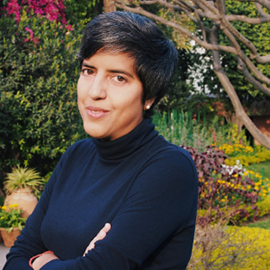
Devika Daulet-Singh established PHOTOINK in 2001 as a photo agency and publication design studio, based in New Delhi. In 2008, PHOTOINK expanded into a gallery to exhibit contemporary Indian photography and international photographers. Her engagement with the world of photography has been as an editor, curator and publisher of photo books.
Devika Daulet-Singh has juried for the Umrao Singh Sher-Gil Grant for Photography (2015), W. Eugene Smith Grant in Humanistic Photography (2010), RNG India Press Photo Awards (2004, 2006), and has been a nominator for the 2016 International Photography Prize, the Prix Pictet prize (for the last five years) and the 2014 GD4PhotoART award.
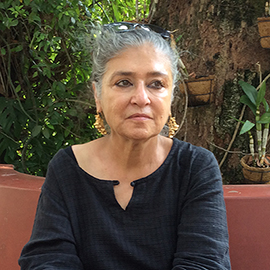
Neelam Man Singh Chowdhry has a Master’s degree in the History of Arts as well as a diploma from the National School of Drama. In 1979, she moved to Bhopal and joined Rang Mandal, a theatre repertory attached to the multi-arts complex, Bharat Bhavan. In 1984, she moved to Chandigarh, where she set up her own theatre group, ‘The Company’. Alongside The Company, she has been teaching in and was also chairperson of the Department of Indian Theatre, Panjab University.
Her well-known plays include Kitchen Katha, The Suit, Yerma, Nagamandala, The Mad Woman of Chaillot, Little Eyolf, Bitter Fruit and Naked Voices, to name a few . The theatre group has participated in major national and international festivals.
Neelam Man Singh Chowdhry is the recipient of several awards including the Sangeet Natak Akademi Award (2003) and the Padmashri (2011). She is presently Professor Emeritus at the Panjab University.
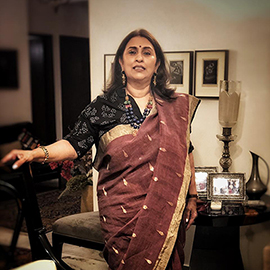
Pooja Sood is a founding member and Director of Khoj International Artists’ Association, which is an autonomous, not for profit society committed to experimentation and exchange in the visual arts in India. Under her stewardship, Khoj has grown from an annual event in 1997 to a small but vibrant institution which plays a central role in the development of experimental, interdisciplinary and critical contemporary art practice in India.
As Director of Khoj, Pooja Sood has worked actively to build a robust network of experimental spaces across South Asia, resulting in the South Asian Network for the Arts (SANA). Her contribution has been in the field of curating alternative contemporary art practices in India, as well as exploring different models of collaboration and institution-building in India and South Asia.
Since 2009 she has been the Director of ArThinkSouthAsia ( ATSA), which is an arts management programme for young cultural leaders in South Asia. More recently, in 2015, she was appointed Director General of a multi-arts space, the Jawahar Kala Kendra, in Jaipur.
Pooja Sood is a Chevening scholar on the Clore Leadership Programme, UK ( 2009–11). She lives and works in New Delhi.
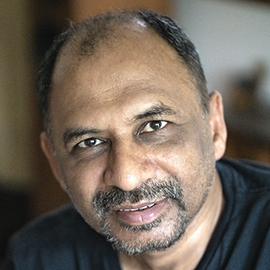
Ravi Agarwal has an interdisciplinary practice as an artist, environmentalist writer, and curator. His work bridges the divide between art and activism using photography, video, text, and installation posing questions about ecology, society, culture, urbanity, etc. His work has been shown widely including at the Smithsonian’s National Museum of Asian Art (2022), the Biennials of Havana (2019), Yinchuan (2018), Kochi (2016), Sharjah (2013), Indian Highway (2009), Documenta XI (2002), etc. besides numerous solo and group exhibitions. He curated New Natures, A Terrible Beauty is Born at the Goethe Institute and CSMVS Museum, Mumbai (January 2022), and Imagined Documents at the Les Recontres d’ Arles (July 2022). He is the curatorial advisor for the exhibition, Carbon (2024), at the Science Gallery, Bengaluru, India, and Co-Convenor for the Bergan Assembly (Norway) 2025.
Ravi is alongside the founder and director of the environmental NGO Toxics Link based in New Delhi, and The Shyama Foundation’s – Shared Ecologies program, which supports emerging initiatives at the intersection of art and ecology in India. (www.sharedecologies.org). His recent projects include Samtal Jameen, Samtal Jameer (www.multispeciesart.org), and a photobook The Power Plant – fragments in time. He is a visiting fellow at the Paul Melon Centre for Studies in British Art (London, 2024) and recipient of the UN Award for Chemical Safety and the Ashoka Fellowship. (raviagarwal.com)
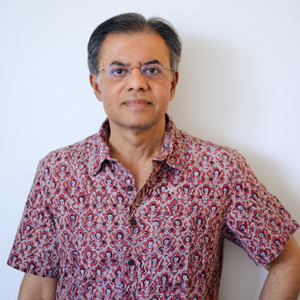
Ravi Sundaram is a Professor at the Centre for the Study of Developing Societies (CSDS), Delhi. In 2000 he founded the well-known Sarai programme at the CSDS along with Ravi Vasudevan and the Raqs Media Collective. Since then, Sarai has grown to become a leading experimental and critical research space working on media and contemporary culture. Sundaram is the author of Pirate Modernity: Media Urbanism in Delhi (2010) and edited No Limits: Media Studies from India (Delhi, 2015). He is the co-author of the Techno-Pharmacology, University of Minnesota Press, 2022. Sundaram has also co-edited the Sarai Reader series, The Public Domain (2001), The Cities of Everyday Life (2002), Shaping Technologies (2003), Crisis Media (2004). His current project looks at collective mobilisations and media aesthetics in the 21st century.
Sundaram’s work overlaps between media theory and contemporary political aesthetics. As a scholar and writer, Sundaram has participated in various editions of Documenta, the Venice Architecture Biennale, Manifesta, the Kochi-Muziris Biennale etc. His essays have been translated into various languages in India, Asia, and Europe. Sundaram has been a visiting Professor at the universities of Princeton, Johns Hopkins, Michigan, Ann Arbor, and Oxford.
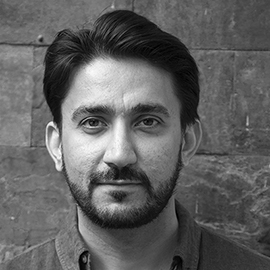
Sabih Ahmed is a curator, culture theorist and educator living in the UAE. He is the Co-Artistic Director of the Diriyah Contemporary Art Biennale 2026 with Nora Razian. Since 2020, he was the Director of Ishara Art Foundation in Dubai, where he currently serves as a Projects Advisor. His work focuses on modern and contemporary art mapped through diverse itineraries and inter-disciplinary formations. Sabih has led the strategic direction and expansion of Ishara, organising major solo exhibitions of artists such as Jitish Kallat and Sudarshan Shetty; curating solo and group exhibitions and initiating artist-led curations. Prior to Ishara, Ahmed was a Senior Researcher and Projects Manager at the Asia Art Archive from 2009-2019, where he was involved in establishing their office in New Delhi.
He has led numerous projects that include the research and digitisation of artist archives, compilation of online multi-lingual bibliographies and organising workshops, conferences and seminars on archives and publicly accessible resources. He is the co-author of the book ‘Mass Traffic’ with Lantian Xie (2023), and his essays and interviews have appeared in numerous publications that include The Whitworth, The Arts Newspaper, Arts Cabinet, Mousse, Ocula, Oncurating, and The Sarai Reader. He has organised workshops, offered mentorship and presented at conferences and panels at the Department of Culture and Tourism in Abu Dhabi, the American University of Beirut, the NYU Abu Dhabi, the MoMA C-MAP, The Metropolitan Museum of Art, the World Conference on Creative Economy. He was a Visiting Faculty at the Ambedkar University Delhi from 2014-2019, and has lectured in various universities in Asia, Europe and the US.
